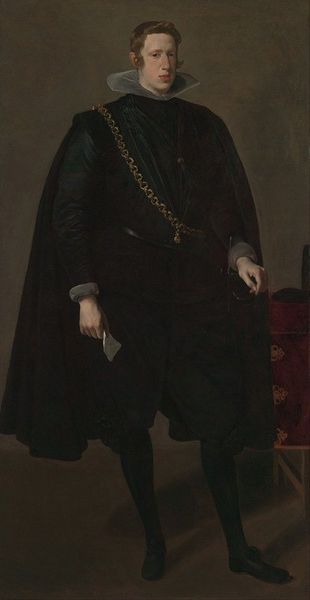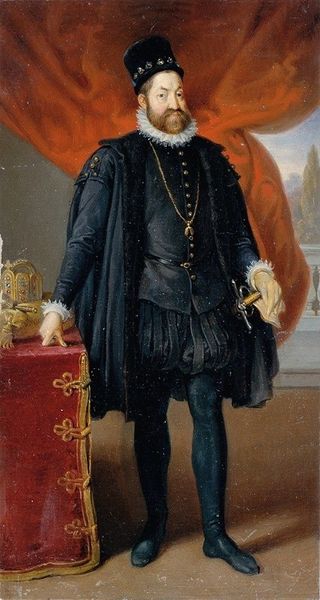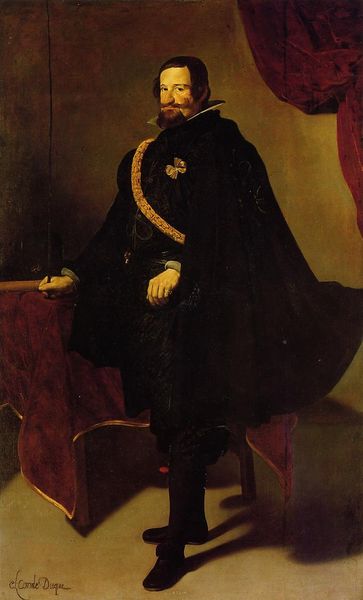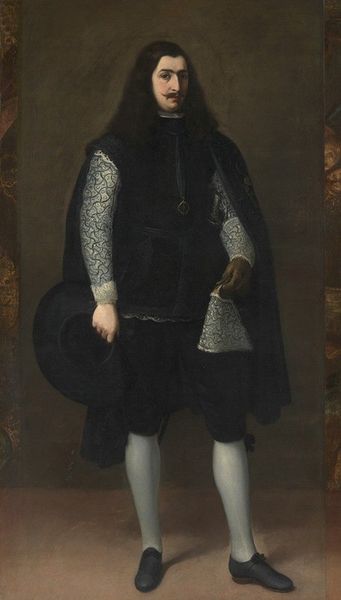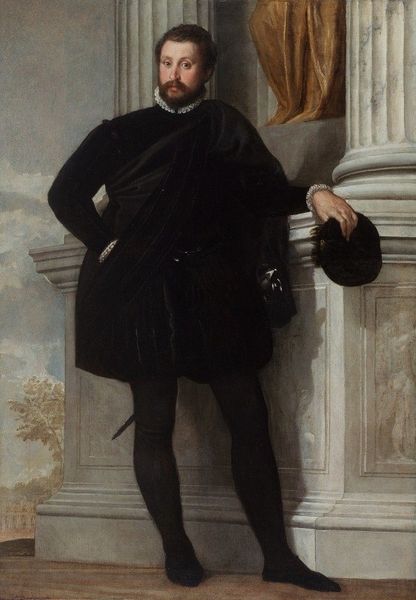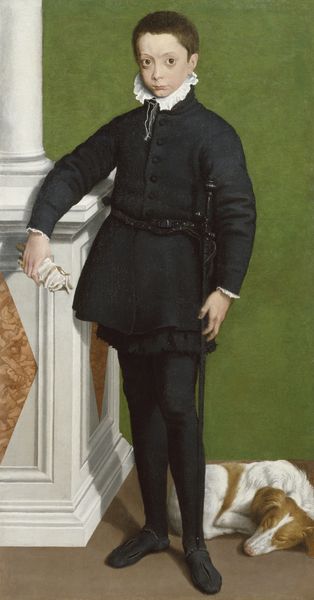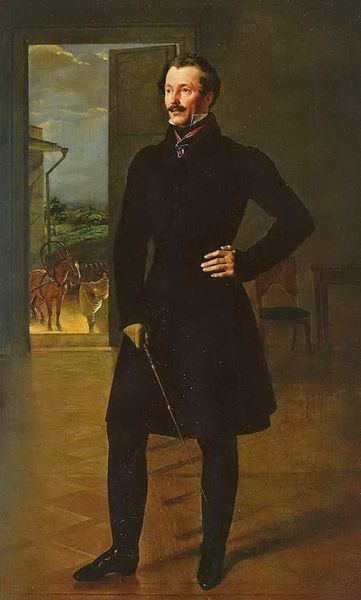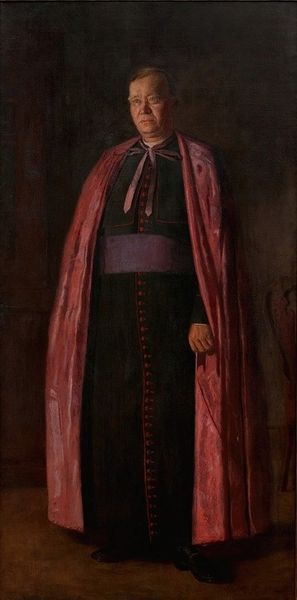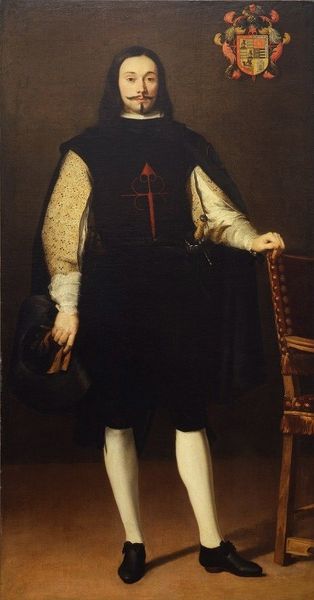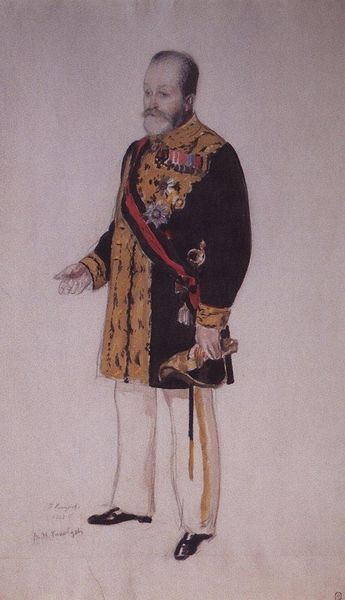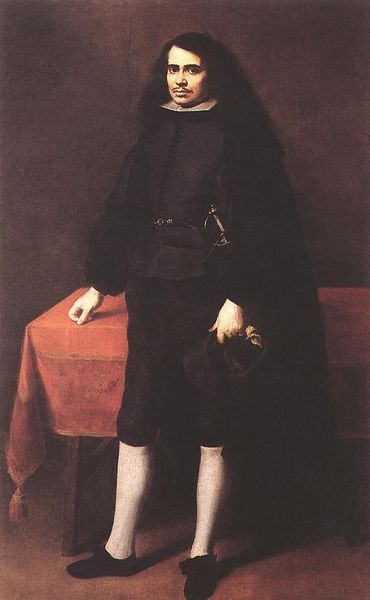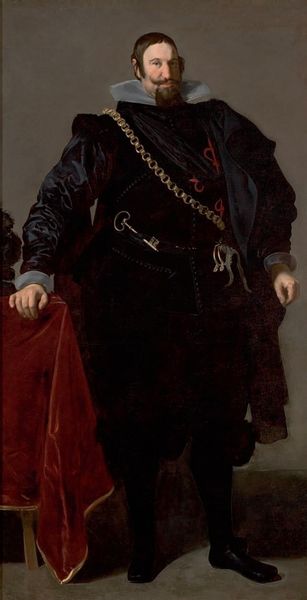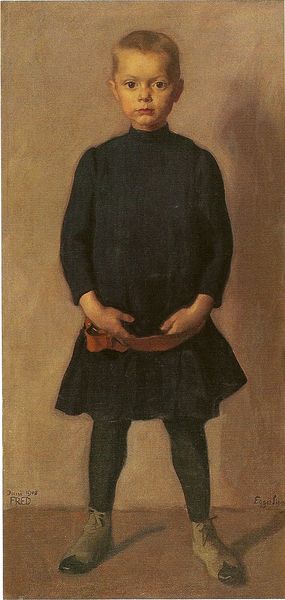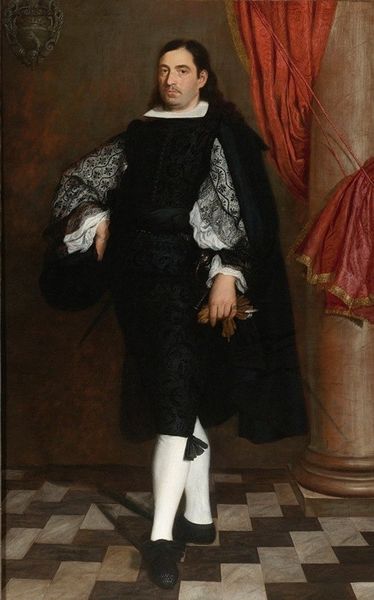
painting, oil-paint
#
portrait
#
character pose
#
figurative
#
character portrait
#
baroque
#
low key portrait
#
portrait image
#
painting
#
oil-paint
#
portrait subject
#
portrait reference
#
portrait head and shoulder
#
portrait character photography
#
fine art portrait
#
realism
#
celebrity portrait
Copyright: Public Domain: Artvee
Editor: Here we have Velázquez's "Portrait of Don Pedro de Barberana" from about 1631 to 1633. The painting is largely somber, with a striking contrast between the figure's elaborate clothing and his almost weary expression. How do you read this portrait within its historical context? Curator: That weariness is key. This portrait wasn't just about capturing likeness; it was about solidifying power and position in a very hierarchical society. Notice how the stark, almost minimalist background throws Barberana’s ornate cloak into sharp relief. Those aren't mere decorations. They speak to membership within the Order of Calatrava, a military and religious order. Editor: So the painting functions as a kind of visual declaration of his status? Curator: Exactly! Think about it: Velázquez was a master of realism, but he also knew how to construct a powerful image. This isn’t just *a* man, this is *the* embodiment of Spanish nobility and military might. His pose, his gaze—it's all meticulously designed to project authority. But does it quite mask his internal state? Editor: I see what you mean. There’s a certain vulnerability that complicates that authority, perhaps even challenges it. What's especially interesting is that a portrait is still so resonant centuries later. We’re still unpacking these issues of identity and power. Curator: Absolutely. Velázquez gives us a moment of profound contemplation on the subject of identity construction and its discontents, one that continues to be renegotiated within our contemporary sociopolitical frame. And to ask ourselves, how has portraiture changed—or stayed the same—in the centuries since this painting?
Comments
No comments
Be the first to comment and join the conversation on the ultimate creative platform.
